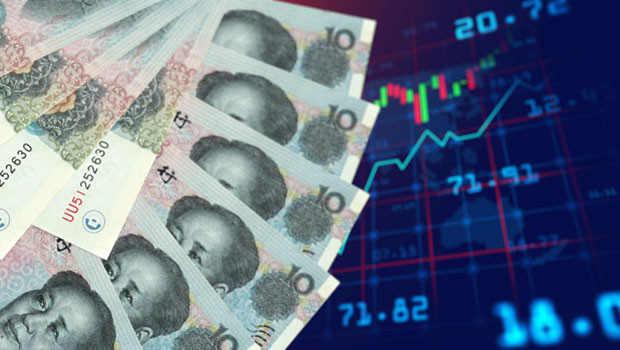Asia report: Most markets fall as China returns from holiday

Asia-Pacific markets experienced a turbulent session on Tuesday, as mainland Chinese markets returned from a week-long break, while traders digested weak data from Japan.
Mainland China stocks rallied sharply at the open as they returned from ‘Golden Week’, but the momentum faded by the close.
“Investors were let down when Beijing policymakers provided only broad outlines about stimulus plans at a high-profile press conference, dashing hopes for a roaring restart to China's stock rally after the mainland's week-long holiday,” said Patrick Munnelly at TickMill.
“The National Development and Reform Commission expressed confidence in meeting its targets but offered no details that investors craved on China's aggressive stimulus measures.”
Munnelly said that while mainland stock indexes initially surged 10% to multi-year highs, some of the gains were quickly erased.
“In contrast, Hong Kong shares showed a sea of red, with the Hang Seng Index tumbling more than 10% at one point, as markets were disappointed by the lack of stimulus specifics from Beijing, setting up a negative opening for Europe.”
Most markets in the red, China returns from holiday in positive territory
In mainland China, the Shanghai Composite surged 4.59% to 3,489.78, while the Shenzhen Component soared 9.17% to 11,495.10.
Notable gainers in Shanghai included Raytron Technology, Montage Technology, and Advanced Micro Fabrication, each rising around 20%.
In contrast, Hong Kong’s Hang Seng Index saw a dramatic fall, plunging 9.41% to 20,926.79.
The index briefly dropped over 10% earlier in the session before slightly recovering.
Key stocks such as Longfor Properties, China Life Insurance, and China Mengniu Dairy suffered severe losses, declining by over 19%.
Japanese markets also ended lower, with the Nikkei 225 down 1% at 38,937.54 and the Topix falling 1.47% to 2,699.15.
Major decliners included Shiseido, Yaskawa Electric, and Mercari, each falling more than 5%.
Elsewhere, South Korea’s Kospi 100 dipped 0.84% to 2,592.69, with heavy losses from LG Household & Healthcare and Kumho PetroChemical.
Australia’s S&P/ASX 200 fell 0.35% to 8,176.90, weighed down by declines in IGO, Fortescue, and Liontown Resources.
New Zealand’s S&P/NZX 50 dropped 0.32% to 12,555.99, led by losses in Eroad and A2 Milk Company.
Currency movements saw the dollar slip 0.24% on the yen, last trading at JPY 147.83.
The greenback was stronger on its down under counterparts, however, rising 0.43% against the Aussie to AUD 1.4863, and advancing 0.09% against the Kiwi, changing hands at NZD 1.6340.
Oil prices fell, with Brent crude futures last down 1.89% on ICE at $79.40 per barrel, and the NYMEX quote for West Texas Intermediate sliding 1.96% to $75.63.
Household spending falls in Japan, but real wages rise
In economic news, Japan's household spending declined 1.9% year-on-year in August, marking a less severe drop than the 2.6% decline forecast by economists in a Reuters poll.
Although the contraction was the steepest since January, when spending fell 6.3%, it still showed some resilience.
The January decline occurred before significant wage increases resulting from spring negotiations, which delivered the biggest pay raises for unionised workers in over three decades.
Despite the fall in spending, there was a positive development in real wages, which rose by 2% in August.
According to the country’s statistics bureau, the average monthly wage reached JPY 574,334, providing some relief to households grappling with rising living costs.
Reporting by Josh White for Sharecast.com.